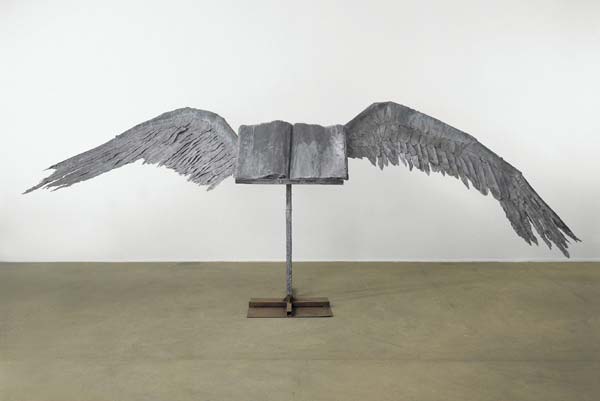
1. Those who want to use self-publishing as a stepping stone to being traditionally published.
2. Those who don’t care about the traditional system whatsoever and want to sidestep it.
The vehement reaction in the Publishing Renaissance debate against traditional publishing makes me want to write about the second. And this post might just get me into trouble. I wrote a comment on that post that I enjoyed the debate, but it’s been kind of weighing on me. It’s weird to be on the side against self-publishers, as I’m such a staunch advocate. But at the same time I come pretty firmly in camp #1. Might as well come out and admit that.
I wonder about people who say they have no interest in the traditional system. It’s almost like saying – I don’t want to be as successful as I could be. Even if you were able to sell thousands of books via non-traditional methods, having a book in bookstores is one better. Until most book shopping doesn’t occur in bookstores you can’t really claim that self-publishing is ideal, even if it does have great potential.
I have the feeling that people don’t want to deal with traditional publishers because it’s safer. The reader review system can be fairly uncritical – a lot of backscratching and support. It’s no doubt extremely important to reach readers, but (I’m reading into people’s motivations) maybe they want to do this because it never really puts their writing to the test of intense critical analysis. So they write off the gatekeepers- whether editors or trad print reviewers – so they won’t have to face them. It’s easier to believe that the gatekeepers opinion doesn’t count for anything. I see an impulse in the self-publishing community to believe that all books and opinion carry the same weight. No, there are better fiction writers and better reviewers. It’s not snobbery to believe that – it’s unrealistic to think otherwise.
But really, if you’re serious about reaching the greatest number of readers you should be interested both alternative and traditional media. It basically doubles your potential readership – if not more because a review in the Washington Post will do a lot more for book sales than a review on Goodreads. And traditional distribution via bookstores is superior to online-only distribution – the ideal is the two combined, the most progressive web 2.0 methods plus old-style distribution. So traditional publishing has real value, no matter how much people want to ignore that.
I’ve been accused of being too attached to the traditional model – which is ironic because I hate the traditional system. It has repeatedly disappointed me. But I also think it’s a potentially beautiful thing if done correctly – it’s just become totally corrupted by greed and short-term thinking. But a system that lets writers reach the greatest number of readers is a great thing. It’s something to aspire to – have your writing make the greatest possible impact. I advocate self-publishing as a totally valid avenue because trad publishing is such a mess, but the traditional system also has a huge amount to offer if done right.
I may be totally off-base in my assessment of (some) people’s motives for sidestepping traditional publishing. But I don’t think it makes sense to write trad publishing off because it is still a very efficient way of reaching readers. So there must be another reason people want to avoid it – and one of those reasons is that some writers don’t care about being taken seriously by established media, even if it means selling fewer books.
For self-publishing to be taken seriously, top-down criticism of self-published works has to happen. I’m not trying to stamp idealism, but being a realist. But if people aren’t interested in being a part of more-established literary circles, this may never happen. Steven Reynolds wrote an astute comment, saying,
The parallels with independent film and punk rock don’t ring true for me. They might if self-publishing were full of challenging, experimental, non-commercial books breaking new artistic ground; books that were being resisted by risk-averse mainstream publishers who were too conservative or too stupid to see a new kind of literature blossoming around them. But is self-publishing really like that? Honestly? In some cases it is. But the majority of self-published books were aiming squarely for mainstream commercial success and just didn’t make the cut.
Zoe Winter left a similar comment:
I’ve thought a lot about this issue: the attitudes about indie musicians vs. indie authors, and I think a big part of it is that a lot of the first indie music was punk and other forms of “rock,” which is by nature, defiant. Punk and rock/alternative musicians tend to be “defiant” as well. This defiance makes it socially acceptable within their group of other musicians to break away and do their own thing. Being anti-establishment is very trendy.
But in writing, it’s different. Most writers just aren’t that defiant.
What worries me is that if more writers aren’t intent on more traditional success that it could actually halt self-publishing’s progress – i.e. self-publishing won’t be an avenue for all types of writing and will remain an avenue for niche fiction and non-fiction, which is really no different than it’s been for years. This worries me to the point of thinking I shouldn’t have the reins of this site because I couldn’t care less about something like vampire erotica. Yes, I know it’s a mistake to write of a genre, but often that kind of stuff is more about its subject than it is about the writing.
At the same time, it’s vampire erotica-type fiction that can more-easily subvert the traditional system and find readers. Is it wishful thinking to think that all genres and types of writing could break through in this system? If writers aren’t more willing to put themselves on the line with more-critical readers and more-critical reviewers, then this may just be the case. Books that are well-regarded both traditionally and non-traditionally will help establish self-publishing overall.
Get an Editorial Review | Get Amazon Sales & Reviews | Get Edited | Get Beta Readers | Enter the SPR Book Awards | Other Marketing Services






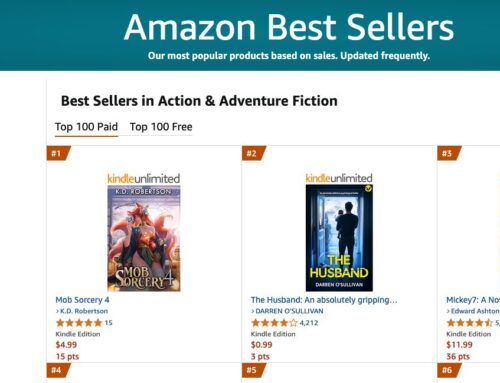






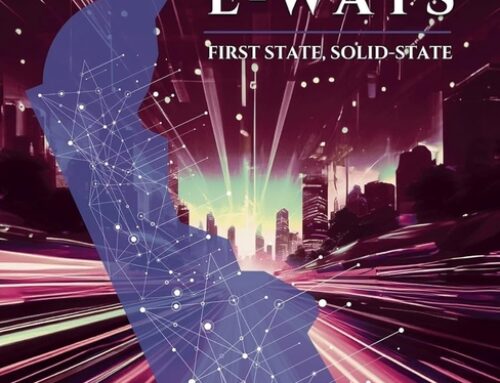





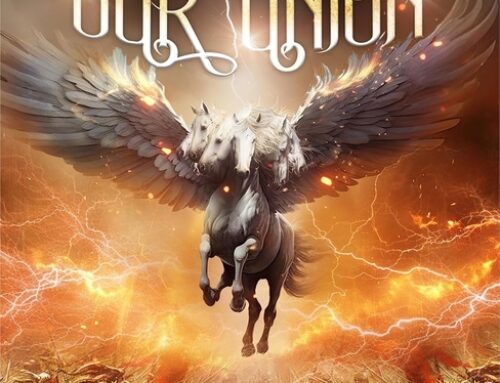
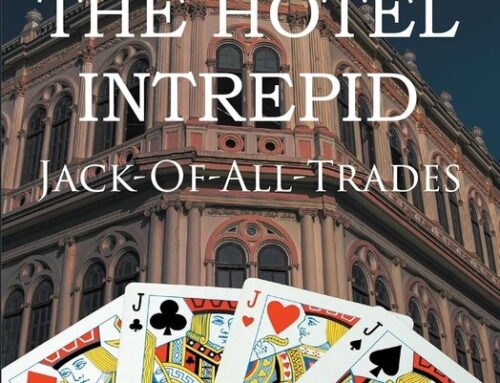
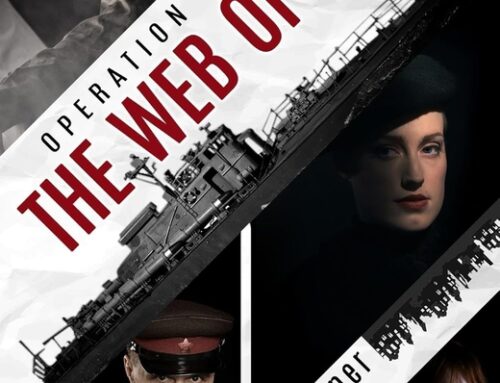
Music is music. Books are manufacturing. Imagine the hubris of saying “I want to make cars, but I don’t care to use a dealer network, I’ll just sell them on my website”. Ridiculous.
And then there is me. And others like me — whose numbers will increase in the next 2-3 years *greatly*.
We’ve *had* books published by major houses. And we’ve all been screwed by them, used by them, and cast off by them.
To abbreviate my sentiment: FTS!
The only ones who see traditional paper-based corporate publishing as some sort of Gold Standard are those who have never been in the belly of the beast — or those who *don’t give their manuscripts to professionals before direct publishing*.
No way would I publish my fiction without a professional copyeditor going through it first. And then a proofreader after that.
That’s an expense. And one involved in true *publishing*, where there is little emphasis on “self” and more on the *book*.
There might not be a holistic analogy between indie music and indie publishing, but this is just as misguided. Please. Books = content. Books != paper and binding and shipping containers from China. And to compare books to cars? Sheesh.
That’s a pretty ironic statement, Victor, in light of the large number of auto dealers who are about the be shut down, partly due to auto-makers’ blindness to how the market was evolving. Not unlike bookstores, actually.
Henry, while I think you’re absolutely right about a large segment of self-publishers simply being aware that their work isn’t up to par, I think you’re painting too broad a brush with that second camp. Amongst those who “don’t care” about the traditional system are writers the traditional system isn’t ideally suited to serve, ie: non-fiction authors with a specific expertise and established audience; and poets and niche genre/experimental writers for whom there is little room or profit on bookstore shelves. These writers are generally much better off self-publishing because their audiences are small but loyal, and can be reached directly and relatively cheaply outside of traditional channels; many also make far more money from their work by not depending on an under-promoted, single spine-out copy buried on a bookstore shelf for success.
I find it fascinating that the topic of self-publishing is most often discussed in terms of commercial fiction, and most vehemently dismissed by mid-list authors who will never hit a Bestsellers Lists, nor ever receive the kind of marketing support those bestsellers enjoy. It’s like Jan bullying Cindy because she can’t compete with Marcia.
I’m guessing that this post was directed (at least partly) towards me, so I’ll just make a few brief comments, post a link, and say no more.
First. The PubRen article that you link to wasn’t so much a criticism of traditional publishing as it was a criticism of a particular website and it’s business plan.
Second. For me (and I’m only speaking for myself), the choice to self-publish is not only an artistic statement, but it is also a political statement. I won’t elaborate on that point here. If anyone cares, they can follow this link and review my posts for themselves: http://publishren.wordpress.com/author/jmreep/
Third. I, too, have been skeptical of the punk rock analogy. I think punk rock is anger and rebellion — sometimes rebellion for the sake of rebellion. Unfortunately, there isn’t enough of that in self-publishing.
Last. Vampire erotica??
J.M., it wasn’t directed at you, just a general stance on self-publishing – it’s something I’ve encountered beyond that thread. Vampire erotica: I was looking for a niche that could only sell via a self-publisher or micropress, but could actually sell pretty well compared to other s-p books.
First: So you know, the IR people are releasing a companion site to IR, where anyone can list. I’ve been in touch with Amy Edelman: her heart and head’s in the right place, and I’ll grant that some of the criticisms on that thread are valid, but a lot of it was nitpicking. People who write under a pen name? Yeah, that affects some people, but it’s not make or break for the entire site. I thought people were being unduly harsh. Mark Coker was more reasonable.
Third: Punk rock is about innovation. Bad punk rock is only about rebellion. But good punk rock is about inventing an entire kind of music. And by punk rock, I include indie rock. So SST records had the Meat Puppets, who were just as innovative as Black Flag, but less angry. I wish self-publishing was full of more of that drive, but sometimes I think I’m fooling myself.
Mike, as I say, publishing’s broken – it’s great if it’s working correctly, but it isn’t. Still, if you’re traditionally published (whether corporate or small press) you’ll have increased access to reviewers and distribution, and you’ll be able to do all the Goodreads stuff as well, so it shouldn’t be written off. Profits might be better with self-publishing, but you’ll probably sell fewer books.
Guy, you’re right about self-publishing being totally appropriate for certain writers – I’m responding to people who want to sell a lot of books and still want to avoid the system. Poetry or experimental writers will have a tougher time of it in the traditional sphere. But as JM says above, not going the trad route is a political statement for some, even if it means fewer sales. Self-publishing’s always been a good place for niche writers, but in the new paradigm it will be good for everybody – and that’s what interests me more.
Hey Henry, with the current explosion of self-publishing spreading like never before, it will quickly reach market saturation. Everybody, their brother, their mother, their friends and their pets are trying to sell their books. And yes, the traditional publishing model is hurting right now; however, with rampant self-publishing going wild, traditional publishing will make a big comeback within a few years. I definitely see self-publishing as a stepping stone to a real book deal and would never deprive myself of success. One thing is for sure, most writers are not experts in Internet marketing and therefore most will not sell massive quantities of their own books like horror author Scott Sigler—who from what I understand gave away 13,000 free copies of his first self-published book at the web 2.0 expo and was strong in marketing skills. Most people don’t have the money to do what he did.
“I find it fascinating that the topic of self-publishing is most often discussed in terms of commercial fiction, and most vehemently dismissed by mid-list authors who will never hit a Bestsellers Lists, nor ever receive the kind of marketing support those bestsellers enjoy. It’s like Jan bullying Cindy because she can’t compete with Marcia.”
Oh how I love thee for this. Let me count the ways.
I thought about #1 v #2 thing for a while. I will take whatever makes me the most profit. If that includes a book deal, well, okay. Depends on the contract terms, I suppose. Thing is, I spent 10 years on the query/reject hamster wheel and I simply got tired of it. It’s not bitterness, not condescension of traditional publishing. Just another manifestation of my DIY personality.
Henry, very interesting article and one that’s hard to boil down the participants into two camps. I know, I have tried by doing that myself. I have written in defense of self-published authors because of the biased that many traditional authors have against self published books. Many people in the traditionally published world try to unjustly lump all self published books/authors into the same boat, or into ill defined straw man groups. But I have also written against the bias that self-published writers often have against traditionally published authors.
The truth is, either model can serve the author and the reading public well, as long as the author does due diligence in putting out a commercially viable book. It does not take the traditional publishing system to make that happen (and they often fail at that), though they have safeguards in place to make sure quality books are brought to the market more times than not.
The reality is that there is a middle ground that makes room for both the self published and the traditionally published markets to co-exist in bringing quality books to market. The loudest critics and supporters at both ends of the spectrum will be unwavering in their support of their viewpoint, but my guess is that the best of both publishing systems will evolve as the market evolves. Traditional publishers, with their superior distribution system will find a way to bring the most commercially promising self published books into their world if the author wants to migrate into their system.
My view often puts me on the hot seat by advocates of both systems, which is fine. Time will bear out the truth and it will be interesting to see how the traditional and self publishing worlds evolve.
I, for one, would love to have a traditional publisher take the burden of promotion and distribution off of my shoulders. However, self-publishing has given me the opportunity to get my work out there, and listed on Amazon, when the traditional publishers refuse to touch my work. They’re afraid of a [frivolous] law suit that the Philip K. Dick Trust has threatened. Ironically, these same publishers would snatch up unauthorized and even libelous biographies of celebrities in a heartbeat, law suit or not.
Given the – hum – quality of some of the things coming out Traditional Publishing houses at the moment (and becoming popular no less) I’d say that anyone who wants to avoid the Gatekeeper is clearly unaware of how lax said Gatekeeper has become. Or maybe they are just aware how capricious he is.
People who say they don’t care about Traditional Publishing generally mean they don’t trust Traditional Publishing and are therefore avoiding it. As you say it’s corrupt and you can’t blame people for avoiding something corrupt.
Very interesting post. I fall firmly in the 1) camp, even use the words “stepping stone” to describe it, but I think I will definitely self-publish again at some point in the future even if I do get a “deal.” The reason for this is because there are bound to be projects an agent or publisher doesn’t want, or things I want to retain full creative control over from start to finish. Now that I know what to expect, especially, I think it’s a very interesting and desirable alternative even while traditionally published work is out there turning heads and selling copies.
I think your “camps” might be a bit off based on the comments you made about fear, gatekeepers, critical analysis, and trust. I see the camps divided this way:
1. The Delusional
2. The Not
We know all about the delusional self-pub author: the ones who attack reviewers, the ones who staunchly oppose traditional publishing with no knowledge of the process—the ones who think they will make millions on the internet with their poorly edited self-published book. For some, it’s simply naiveté, and for others, they actually believe their own bombast. That’s everywhere, and I don’t think it is representative of the true entrepreneurial spirit of most self-published authors, certainly not the ones I have met. The “NOT” delusional understand the finer workings of both publishing models; they care about quality of product; they invest in their art; and more importantly, not all of them have disdain for the traditional publishing model. Some are using it as a stepping-stone; some just want to do their own thing, and if they get a book deal down the road, it’s nice; and lastly, some have no interest in the traditional model at all. Whatever the reason, be assured it is a valid well thought out reason: The” NOTs” are realistic in their expectations, and they certainly don’t write off the gatekeepers. The gatekeepers are just different on this side of the fence. The Pod review sites have become the gatekeepers in a sense. If the authors didn’t want critical opinion, they would have all their friends give them 5 star reviews on Amazon and not even bother submitting to us.
I talk to many authors, and most of them fall into the “Not” category. Many delusionals will eventually migrate over to the “NOT” camp, for those where it was a case of naive excitement and not true delusion. Reality eventually comes crashing down upon them and they get serious. Sadly, some delusionals will remain right where they are. It’s a constant flux, and I don’t think a misplaced fulcrum is going to affect anything in the end, despite what the media spin says about it. Traditional Publishing will go on with or without us. There are enough authors who want the traditional deal, and there are enough who don’t to keep it interesting. I am all for anarchy, especially anarchy for art, but the reality of it is, half of this Indie revolution stuff is nothing more than static right now.
Me, what’s my stand? Well, I write novellas. Stand-alone novellas are cost-prohibitive for the traditional publishing industry, but people still want to read them. E-publishers have taken up some of the slack in the genre, but too much of it is niche fiction and not true “novellas” from a literary standpoint. I just love the genre and have no desire to write anything else. Secondly, I have a career. I don’t need another one. I write because I love the art of it. I can’t stop writing, and I put it out there simply because I want to share it. Lastly, I do happen to care about the traditional publishing model. It might hold no interest for me, personally, but I wouldn’t call it sidestepping. Not to mention, I volunteer my services to help other authors here and there with query letters and/or a book proposals. Hell, it’s why I became an Indie reviewer: to help writers get where they want to go. Writers are artists, and to attempt to draw a hard-line to define them, or to make assumptions about their individual motivations, is ill advised. The playing field is too varied to draw such lines of demarcation.
As a self-publisher of a successful children’s book series, I have to say that I don’t belong to any camp…except making sure that I put the best product out there, do the best marketing I can, and get my books selling from the bookstore shelves. I think that there are pro’s and con’s to both traditional and self-publishing. It just depends on if you want to steer your own ship or not. My pro side to self-publishing is that nobody can ever take my book out of print but me. I will never need more than one accountant to figure out crazy accounting practices, such as why I have to work off my pittance of an advance for years-before I see another dime (if the book remains in print), and nobody can tell me that my terrific Art Director husband cannot be the illustrator of my covers. As far as your idea’s of not wanting to be reviewed, and that having something to do with not wanting to be published traditionally…are you kidding me? Bring it on! Most of them won’t touch a self-published book…so please don’t tell self-publishers that we don’t want to be taken seriously, we work hard for our success…Maybe it’s time the reviewers and the so-called established media open their eyes, and realize there are some wonderful self-published books to review, unless the Traditional houses-that send them scores of books, would be irritated at that. Hmmm, kind-of makes you wonder why they won’t review us, doesn’t it?
good point, K.B.Brege!
I’ve actually asked reviewers to accept free copies of my books — and been turned down or totally ignored!
~~~
Holy crap, I was quotable? 😀
I will say, and have said before, that I am not against traditional success, even for myself. If I succeeded as an indie and a major NY pub offered me a great contract, I would consider it. I would seriously consider it for mass-market paperback rights, and would consider it for other rights if the offer was really good. i.e. if the offer could push me beyond what I believe I can do on my own.
I would also actively seek out the selling of foreign rights if I got to the point where I could realistically sell those rights through an agent, based on the work I’d done to sell my work domestically, whether I ever worked with a NY publisher or not.
As for “intense critical analysis” LOLOLOLOLOLOL sorry, I haven’t seen much of that in my genre in NY publishing in quite awhile.
And I love vampire erotica… provided it’s well written. 😛 May even write some of it myself.
I’m also with Mojo about the “manifestation of the DIY personality.” Some of us just don’t want to run on that hamster wheel. Now if we were discovered through our efforts, then “maybe” if the deal was good. But the deal would have to actually be good.
I also echo a lot of what Becky says above. The gatekeepers have gotten very lax, and frankly at this point I don’t trust them with my work. I don’t trust them not to put an intern to work editing my book because all their editors are too busy doing non-editing related activities. I don’t trust them not to stick me with a crappy cover. I don’t trust them to actually push my book beyond what I could do on my own. I don’t trust them on anything really. I feel they have less potential of F’ing my book up if I bring it to market first.
Given the fact that most works of fiction don’t truly “break out” and for those that don’t, I believe I can achieve that level of success on my own, unless I was looking at a break-out type of book, with a really good contract, trad publishers are just irrelevant to me.
I don’t rise or fall based on whether NY ever wants me.
Just to add to this discussion. I published a novel via a print on demand service as an experiment. I wanted the book in the hands of readers to see what kind of response I would get prior to shopping the book around to agents and publishers. A young adult title, it was very well received by local bookshops, state-wide newspapers, parents, teachers, and readers aged 12 to 90.
Problems with this experiment… once it had been offered POD, the assumption that it has been rejected by everyone killed the book’s potential when the query letter hit the desk of an agent or publisher. And, as a writer, you cannot possibly reach a wide audience without reviews in significant publications many of whom scoff at POD books for the same reasons, assumptions that it made the rounds first and was rejected everywhere. The process of marketing can be exhaustive. That’s why there are writers and there are book marketers, so the writer can have time to write another one!
Publisher publish books with flaws. There are a lot of bad books out there that have been vetted through the traditional publishing channel. There are some excellent independent books that simply cannot find the light of day. Websites that shine a bit of light on good works are great outlets for getting the word out about a book.
I am very pleased that Indie Reader took on this challenge!
I self-published my book because my understanding is that even if a traditional publisher accepts a book from an unknown author, they refuse to do any kind or promotion of marketing, so you may as well do it yourself and receive a higher royalty!
I have no fear of having my work scrutinized ruthlessly. My book was reviewed by three professional editors before I let it go out the door.
Everyone in my family (including siblings and their families) purchase books (as well as music) exclusively online. Therefore, I’m not so sure about your comment on the relevancy of “brick-and-mortar” bookstores these days.